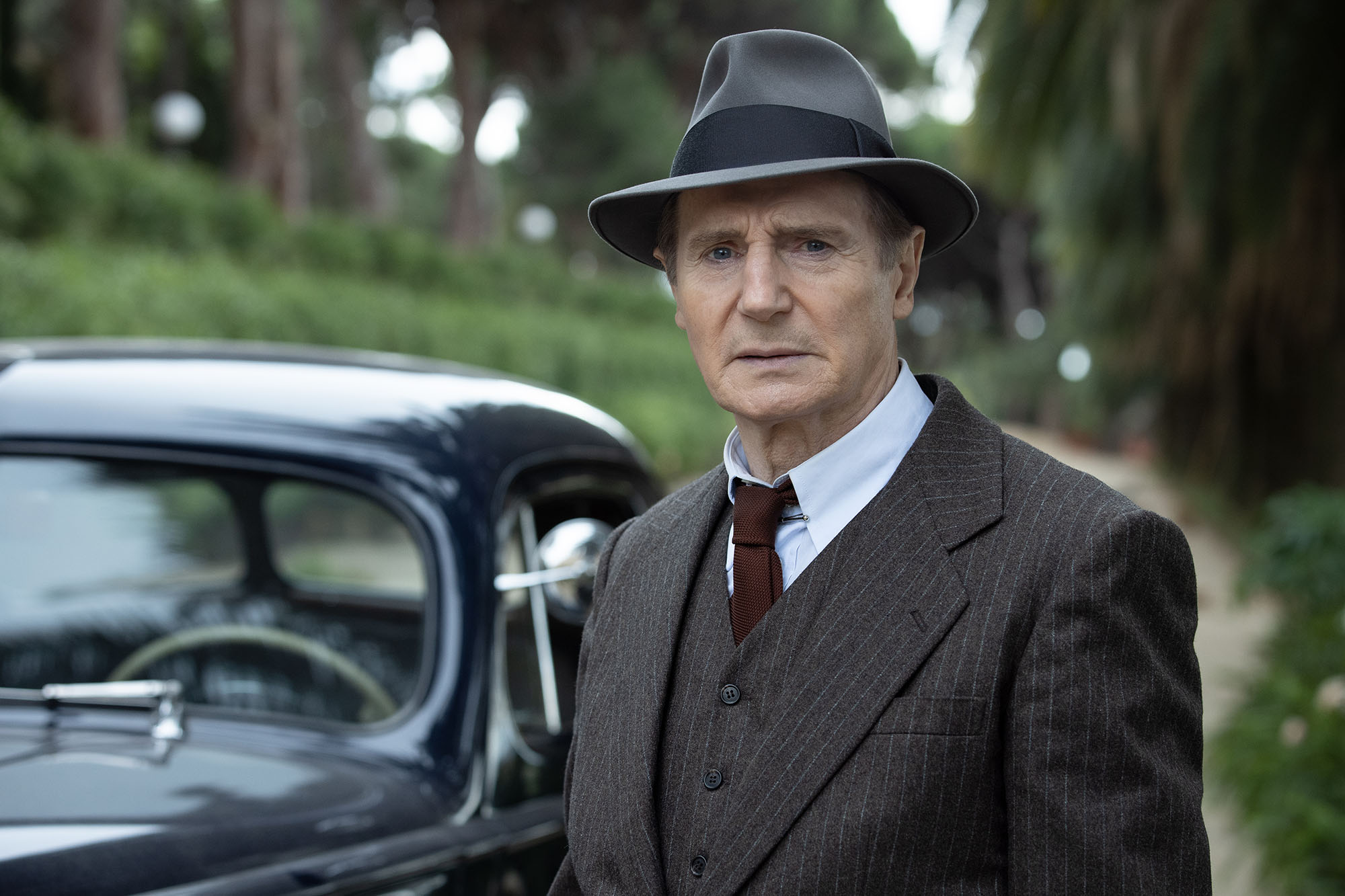The key to understanding the new Philip Marlowe film is being aware that it’s not based on an actual novel by Raymond Chandler but a 2014 exercise by Irish mystery writer John Banville to replicate the style of that legendary author. This picture, somewhat of a beguiling genre experiment that seemingly nobody asked for, initially seems like a bad throwback, but in its game of telephone through adaptation ends up, actually, something of a moderately funny joke.
It’s hard to totally pin down Marlowe’s reason for being; a post-modern Irish exile from Hollywood movies (sinister backlot goings-on supporting this reading) or maybe some kind of elaborate tax shelter plot? It’s as if director Neil Jordan and star Liam Neeson committed to making a noir throwback right after L.A. Confidential came out 25 years ago, realized they forgot to ever go through with it and, coming on the very last leg of their respective careers, said: ‘let’s do it, but kind of as a gag?’ Having turned seventy this past year (though a hard diet of cigarettes and whiskey probably made any middle-aged man in the 1940s look elderly), the Irish star is frankly a little long-in-the-tooth to play the legendary Philip Marlowe, who we’ve already seen in multiple versions of The Big Sleep, The Long Goodbye, Lady in the Lake, etc. Of course, still throwing some punches and even getting into a shoot-out (so the boomers who showed up for Blacklight and Memory jolt awake every once in awhile), the gruff-voiced modern Bronson actually manages to look happy to be there. Possibly just having Neil Jordan on set was enough to keep him smiling.
But to further show you this isn’t too serious of an enterprise, we don’t waste much time getting into the plot. Claire Cavendish (Diane Kruger), an opinionated oil heiress, walks into Marlowe’s office demanding he find her movie business husband. He takes an instant attraction to her “rich bitch” veneer but things get tangled when, during the investigation, he soon crosses paths with her former actress mother (Jessica Lange, introduced riding a white horse) who comes off like a more age-appropriate femme fatale. Soon Marlowe finds himself in a yadda yadda yadda plot involving MacGuffins, neon-lit clubs, and various colorful characters.
Though there seems to be material alluding to classics like The Maltese Falcon and whatnot, per usual the noir-plot trapping made this writer zone out. Yet the overall “why not?” vibe is frankly not-unappetizing, and the talented Jordan (firmly in his I Go Where the Money Is era) keeps things zipping along, squeezing the most production value possible out of his condensed budget, leaning into the uncanniness of Dublin doubling for L.A. Similarly, there’s a lot of novelty from the aging, mostly European supporting cast: Irish old-hand Colm Meaney, Alan Cumming showing up to do a shitty Southern accent as a gangster who frequently references tarantulas, and Danny Huston in a bit of “post-modern referencing of his dad’s role in Chinatown or affordable shitty action movie villain actor” scenery-chewing. Not to mention the film’s lone Black character, Cedric (Adewale Akinnuoye-Agbaje), who gets the chance to fire a Tommy gun and express admiration for the cinema of Leni Riefenstahl, for some reason.
This may not appeal to you, the reader. But in the realm of recent “who is this for?” titles, it’s a lot more likable than, say, the very recent Los Angeles period piece Babylon or fellow noir throwback Nightmare Alley. Compared to those, this movie made by people with nothing to prove and nothing to lose has a lot less strain and far more entertainment value.
Marlowe is now in theaters.

